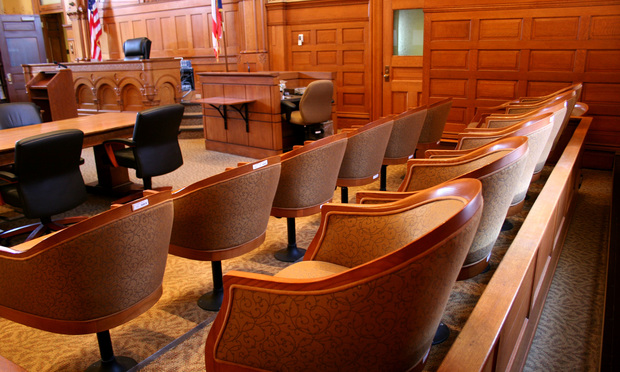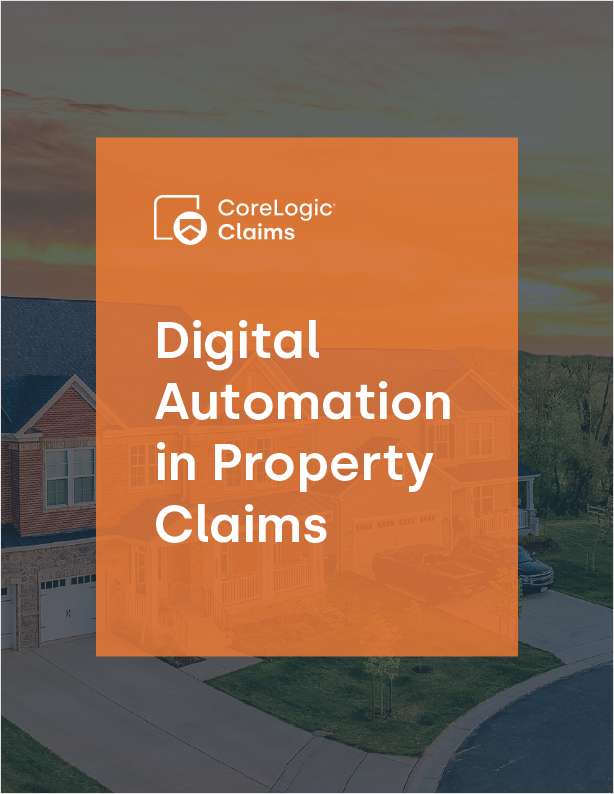The Danger of Disappearing Jury Trials, During and After the Pandemic
Officials in the judicial branch are resolved it is highly likely there will be no jury trials until at least 2021.
May 14, 2020 at 12:10 PM
3 minute read
 Much has been written about the consequences on public health, the economy and society of the COVID-19 pandemic, but few have observed the damaging effects the pandemic has caused to democracy by eliminating future jury trials.
Much has been written about the consequences on public health, the economy and society of the COVID-19 pandemic, but few have observed the damaging effects the pandemic has caused to democracy by eliminating future jury trials.
With the current struggles to find a vaccine that provides complete immunization, officials in the judicial branch are resolved it is highly likely there will be no jury trials until at least 2021. At least one presiding judge is issuing notices in cases scheduled for jury trial in 2020 that state "there will be no jury trials in Hartford in 2020."
The late federal judge, Mark Kravitz, observed decades ago a trend he characterized as "the vanishing jury trial." With alternative dispute resolution on the rise, along with the rising cost of jury trials—particularly in Connecticut with individual voir dire as a method for selecting juries taking substantially longer time to select a jury than in others states—there has been a steady decline in the number of jury trials each year.
The founding fathers were unequivocal in their support for trial by jury. Alexander Hamilton wrote, "The friend and adversaries of the plan of the Convention, if they agree in nothing else, concur at least in the value they set upon trial by jury; if there is any difference between them it consists in this: the former regard it as a valuable safeguard to liberty; the latter represent it as the very palladium of free government." John Adams wrote, "Representative government and trial by jury are the heart and lungs of liberty." And Thomas Jefferson wrote, "I consider [trial by jury] as the only anchor yet imagined by man, by which government can be held to the principles of its constitution."
Former U.S. Supreme Court Chief Justice William Rehnquist observed that the right to a jury trial is "fundamental to our history and jurisprudence" and a "right so fundamental and sacred to the citizens that it should be jealously guarded." As professor Alexandra Lehav explained in her recent book In Praise of Litigation, trial by jury is fundamental to democracy, for at least two reasons. First, it provides an equalizing effect by allowing some of the least powerful members of society to render judgment on some of the most powerful entities and individuals in the world. Second, jury trials allow individuals from different backgrounds and personalities to engage in principled debate over important issues such as public safety and personal responsibility.
The average person does not often think much about trial by jury, and some may regard it as an anachronism, a vestige of a bygone age. We need to remember the importance of a trial by jury to democracy so that, when this pandemic eventually passes, the trial by jury makes a vigorous return and does not, ultimately, vanish.
This content has been archived. It is available through our partners, LexisNexis® and Bloomberg Law.
To view this content, please continue to their sites.
Not a Lexis Subscriber?
Subscribe Now
Not a Bloomberg Law Subscriber?
Subscribe Now
NOT FOR REPRINT
© 2025 ALM Global, LLC, All Rights Reserved. Request academic re-use from www.copyright.com. All other uses, submit a request to [email protected]. For more information visit Asset & Logo Licensing.
You Might Like
View All
ADVANCE Act Offers Conn. Opportunity to Enhance Carbon-Free Energy and Improve Reliability With Advanced Nuclear Technologies

Trending Stories
- 1States Accuse Trump of Thwarting Court's Funding Restoration Order
- 2Microsoft Becomes Latest Tech Company to Face Claims of Stealing Marketing Commissions From Influencers
- 3Coral Gables Attorney Busted for Stalking Lawyer
- 4Trump's DOJ Delays Releasing Jan. 6 FBI Agents List Under Consent Order
- 5Securities Report Says That 2024 Settlements Passed a Total of $5.2B
Who Got The Work
J. Brugh Lower of Gibbons has entered an appearance for industrial equipment supplier Devco Corporation in a pending trademark infringement lawsuit. The suit, accusing the defendant of selling knock-off Graco products, was filed Dec. 18 in New Jersey District Court by Rivkin Radler on behalf of Graco Inc. and Graco Minnesota. The case, assigned to U.S. District Judge Zahid N. Quraishi, is 3:24-cv-11294, Graco Inc. et al v. Devco Corporation.
Who Got The Work
Rebecca Maller-Stein and Kent A. Yalowitz of Arnold & Porter Kaye Scholer have entered their appearances for Hanaco Venture Capital and its executives, Lior Prosor and David Frankel, in a pending securities lawsuit. The action, filed on Dec. 24 in New York Southern District Court by Zell, Aron & Co. on behalf of Goldeneye Advisors, accuses the defendants of negligently and fraudulently managing the plaintiff's $1 million investment. The case, assigned to U.S. District Judge Vernon S. Broderick, is 1:24-cv-09918, Goldeneye Advisors, LLC v. Hanaco Venture Capital, Ltd. et al.
Who Got The Work
Attorneys from A&O Shearman has stepped in as defense counsel for Toronto-Dominion Bank and other defendants in a pending securities class action. The suit, filed Dec. 11 in New York Southern District Court by Bleichmar Fonti & Auld, accuses the defendants of concealing the bank's 'pervasive' deficiencies in regards to its compliance with the Bank Secrecy Act and the quality of its anti-money laundering controls. The case, assigned to U.S. District Judge Arun Subramanian, is 1:24-cv-09445, Gonzalez v. The Toronto-Dominion Bank et al.
Who Got The Work
Crown Castle International, a Pennsylvania company providing shared communications infrastructure, has turned to Luke D. Wolf of Gordon Rees Scully Mansukhani to fend off a pending breach-of-contract lawsuit. The court action, filed Nov. 25 in Michigan Eastern District Court by Hooper Hathaway PC on behalf of The Town Residences LLC, accuses Crown Castle of failing to transfer approximately $30,000 in utility payments from T-Mobile in breach of a roof-top lease and assignment agreement. The case, assigned to U.S. District Judge Susan K. Declercq, is 2:24-cv-13131, The Town Residences LLC v. T-Mobile US, Inc. et al.
Who Got The Work
Wilfred P. Coronato and Daniel M. Schwartz of McCarter & English have stepped in as defense counsel to Electrolux Home Products Inc. in a pending product liability lawsuit. The court action, filed Nov. 26 in New York Eastern District Court by Poulos Lopiccolo PC and Nagel Rice LLP on behalf of David Stern, alleges that the defendant's refrigerators’ drawers and shelving repeatedly break and fall apart within months after purchase. The case, assigned to U.S. District Judge Joan M. Azrack, is 2:24-cv-08204, Stern v. Electrolux Home Products, Inc.
Featured Firms
Law Offices of Gary Martin Hays & Associates, P.C.
(470) 294-1674
Law Offices of Mark E. Salomone
(857) 444-6468
Smith & Hassler
(713) 739-1250












